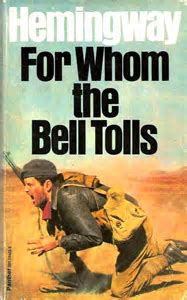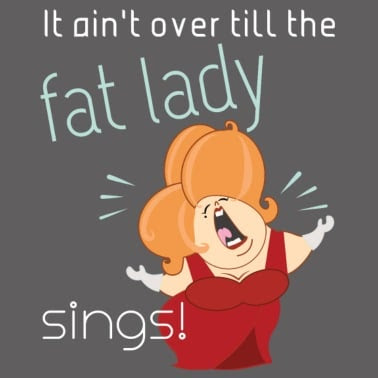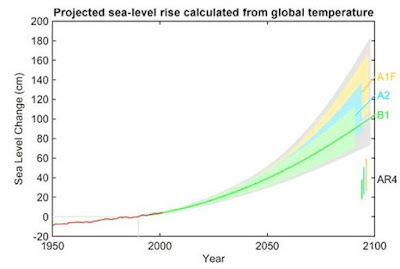Catalonia Revisited: Spain at the crossroads.
This brings to mind my only trip to Spain in June 1976, 6 months after the death of General Franco, the scourge of Spanish democracy. Although the Caudillo was dead, and buried in the controversial Valley of the Fallen, his ghost remained active in the form of his followers, known as the bunker, at the head of which was Prime Minister, Carlos Arias Navarro appointed to the position by Franco. All the while, Spaniards were unclear about the role that King Juan Carlos would play in their precariously balanced political system. Spain was at the crossroads; more strict state rule or the first democratic elections since the defeat of the Second Spanish Republic in 1939.
In the final years of Franco's reign, I was studying literature at university, and I loved the work of Hemingway, Orwell and other great writers of the 1930s, many of whom went to Spain to defend the elected Spanish government from the uprising of the Franco's Nationalist armies. Some took to arms, like Orwell whilst others like Hemingway and his then wife, Martha Gellhorn, were in Spain as war correspondents, as was Arthur Koestler, and photographer Robert Capa who captured the war on film. Other notable writers who participated in the conflict included Jessica Mitford, Andre Malraux and John Dos Passos with any others contributing in a variety of non-combatant ways including donating blood and fundraising: W.H. Auden drove ambulances, and Pablo Picasso made a powerful statement with his famous painting, Guernica, in protest at the bombing of this Basque city. The assassination of the great Frederico Garcia Lorca inspired his friend, Chilean Nobel Laureate Pablo Neruda, then a Chilean diplomat in Spain, to write a collection of poems, Spain in our Hearts. The Spanish Civil War engaged the attention of the intelligentsia of its time.
The vast majority of writers supported the Republican side, and political figures like Roosevelt also did so albeit privately. It was the Vietnam War of its day and captured the attention of the world with many volunteers, comprising the so-called International brigades, enlisting to defend Spain from Nationalist forces. No Pasaran - they shall not pass - was the cry of the defenders of Madrid, just as "el pueblo unido jamas sera vencido" has become the cry of the left in more recent times. Pete Seeger sang, to the tune of Red River Valley, a song that went like this:
There's a valley in Spain called Jarama, it's a place that we all know so well, it was there that we gave of our manhood and where so many of our brave comrades fell.
I remember the Lincoln Battalion and the fight for Madrid that it made, where we fought for the rights of the people, as members of the 15th brigade.There was also a George Washington international brigade, and German and Italian anti-fascist brigades making it an international conflict.
The term the fifth column first came into our language, a reference by Franco to his Nationalist sympathisers inside beleaguered Madrid. Hemingway wrote his only play, The Fifth Column about such a situation. He also co-wrote the screenplay for a documentary, The Spanish Earth in which Orson Welles got his first work in a commercial film. It can still be seen on YouTube.
The Spanish Civil War war was the prelude to the 2nd World War with the Hitler and Stalin commiting forces to the conflict, such as the Condor Legion that bombed Guernica. Other major powers, France, Britain and the US, stayed neutral despite considerable support for the Spanish Republic in their countries. Such appeasement of the Axis Powers failed - Franco send troops to the Russian Front. The Second World War started in September 1939, not long after spain succombed to the Franco ditactorship. .
I was captivated by the literature and history including The Spanish Civil War, the definitive tome by Hugh Thomas. When I arrived in London in May 1976, almost 40 years after the outbreak of this war, I read news reports in the Guardian and London Times about a Marcha de Libertad for democracy, autonomy for Catalonia, and for the release of political prisoners. This march, over a number of days in June, would set off from various points in Catalonia, and was supported by the International Commission of Jurists and the Catholic peace group, Pax Christi. No one knew if the march would be allowed to proceed or whether the heavy hand of the still powerful Francoist state would crack down on all opposition as they had done since their victory in April 1939. Hemingway wrote movingly about the final retreat across the Ebro River on Easter Sunday by the defeated Republican forces in his dispatch, Old Man at the Bridge.
Franco had ruled Spain with an iron fist until his death on 20 November 1975. Following his death, Spainards were unsure of which way the political winds were blowing. Which was when I entered the picture, ready to witness history, ready to take a closer look.
I spent about 10 days in Barcelona, taking in its sights from the wide Ramblas promenade to its colourful and crowded back streets. I had resolved to join the march and therefore visited the headquarters of the organisers for additional information. I also went to El Modelo Prison where a Catholic priest held daily protests, was arrested, dumped at the rubbish tip only to return the next day. He and his supporters became known as Beggars for Peace, and interestingly he was a candidate for the Noble Prize in 1976. He was a scientist, chemist or biochemist as I recall, and his book has a strap proclaiming Candidato al Premio Nobel. However, no Peace Prize was awarded that year as none of the candidates met the criteria outlined in the will of Alfred Nobel.
I joined this protest outside El Modelo Prison on a few occasions and exchanged a few words with this most gentle man. He had a calm and determined presence and passing cars constantly tooted their support as they went by. At the time I was given a coin as change with a hole in Franco's head where someone had taken to it with a hammer and nail. Many found the coin amusing as Franco was widely loathed by the younger generations, especially Catalans.
I was invited to a party by an English girl I met on the coach I was on. I asked her how to make a phone call with the tokens used in those times, and when her boyfriend arrived soon after they gave me a ride to the city centre and invited me to a party. Christine and I remain friends to this day. The party was on the night of the 17th of July, or 40 years after the outbreak of the Spanish Civil War. When I returned home in the early hours a massive protest march had just come to an end, and the authorities hadn't tried to stop it. A new Spain was on the rise and I was ready to join the march.
On the first day of the march, I travelled to Gerona, north of Barcelona and quickly found accommodation and a place to leave my belongings. I noted many police vehicles, jeeps, parked in side streets which seemed a bit ominous. Every town in Catalonia has a central Plaza de Catalunya and when I heard the chanting, throwing all caution aside I headed straight to this Plaza. The crowd were nervous and were playing cat and mouse with the police who rushed forward to have the protestors dash away with the odd arrest taking place. I met a young medical student, Irma, who spoke better English than I did Spanish, and she explained the basics to me. At one stage we had to flee with her friends, one of whom fell and was promptly arrested. The group decided to go by the police comisaria, or HQ, to make discreet enquiries about their arrested friend. On the steep steps outside the building, we were challenged and ordered to stop. Some officers came over, one of whom pointed in and said. "You, come with us". I thought he was pointing to a guy standing next to me and I remember thinking, "Poor bastard". To the surprise of the group, I was separated from the group and led away never to see them again. I'm sure Irma has had a wonderful career as a doctor.
Inside the police building, I remember a short plainclothes officer leaning over and shouting at me, but otherwise not touching me apart from the heat and spittle coming from his mouth. I gave them the pension where my property was located and someone was sent to get it. I was officially in police custody, no further questions asked, nothing explained. That night was spent in crowded and smelly police cells, and at one stage I was moved to another cell and seated in the dark next to someone I recognised from my visit to the office where march participants could register. It was an unhappy place to be with sobs and cries all around me. Many of the other detainees were illegal migrants from Morocco and other countries. The sounds of misery made sleep impossible.
The next morning those in charge weren't sure of my mental state because of my loud protests, and a police doctor injected me with a tranquiliser to quieten me down. We were soon after put onto buses and transferred to the Provincial Prison in Gerona, for further accommodation at the state's expense. We were met by Guardia Civil officials in their familiar tricorne hats who provided prison services, at least in Gerona. Their uniforms were as familiar in Spain as a Bobby and his helmet are in London. I was put into a cell with three other guys, the one formerly referred to from the march organisers office, and the other two members of the then banned Catalan Assembly. In fact, many opposition political parties were banned under Franco but in the uncertain times since his death seemed to be tolerated.
The guy from the march registration office was soon after released leaving little doubt that he was an undercover operative, who probably identified me to be arrested in the first place. The good folk behind the march would not have known that this guy, who frequented their offices and maybe even did voluntary work there, was on the pay of the state security services, an organisation that still retained a very Francoist we're-in-charge mentality.
The guy from the march registration office was soon after released leaving little doubt that he was an undercover operative, who probably identified me to be arrested in the first place. The good folk behind the march would not have known that this guy, who frequented their offices and maybe even did voluntary work there, was on the pay of the state security services, an organisation that still retained a very Francoist we're-in-charge mentality.
The two other guys were friendly, but nervous, and spoke to me in Spanish rather than their preferred Catalan. Many others were arrested and we seemed to occupy at least one wing of the prison. At one stage we were moved to a dining area and addressed in Spanish by a Guardia Civil officer. These warders with their Napoleonic hats were very deferential to some of the prisoners, some important political identities, and even party leaders, plus a Catholic priest. They clicked their heels and doffed their hats as a sign of respect. Perhaps they were savvy and knew that the winds of change were blowing throughout Spain. They simply did their jobs and followed their orders which were to keep us locked up.
We had no view of the outside whatsoever, but there was a tiny barred window high above us, and in the afternoon we heard the reassuring chants of protestors rallying outside, calling for our release. Prisoners were taken away for individual interviews, and my two cellmates returned with grim looks on their faces: they had each been fined what must have been a year's pay for their protests. I didn't know my fate but was the only one kept for a second night and must have had an entire wing of the prison, all to myself. I wasn't flattered at the prospect.
It was a long night and I wrestled with my claustrophobia in silence. Well, I certainly needed to take some deep breathes to get through the night. Mid-morning of my 3rd day some security guys came, handcuffed me extremely tightly leaving bruise marks, and took me to their car. They were hip guys in jeans and sneakers but not the kind you would care to cross in a dark alley. After a short car trip, I was signed over to uniformed officers in a police station near the Spanish-French border. I remember playing some Joan Baez music on a cassette player as they watched a bullfight on TV. One said he loved Joan Baez's music, so these cops were a different species. Ok in many ways. Finally, two officers drove me unhandcuffed to a border post and during the drive I asked about the future of Spain. They shrugged and said things would change but remain the same. At the border, my passport was stamped Rechezado or Refused. I was given my passport back and was then free to go into France.
But the two nights I spent in a Spanish prison were significant ones in modern Spanish history: I was released to the news that King Juan Carlos had sacked the conservative Prime Minister Navarro, and replaced him with Adolfo Suarez, with a brief to prepare the country for democratic elections. Other news on the front pages I recall was of the Entebbe mission in Central Uganda.
After 40 years of Franco dictatorship, Spain was once again on the road to democracy.
The London Times and The Guardian reported that two unnamed French nationals and an unnamed Australian national, me, were arrested in the Catalan Marcha de Libertad. Back in Britain, I wrote to the Australian Embassy about my visa status in Spain. They replied that the security authorities in Catalonia considered me "a promoter of an illegal demonstration" making me effectively a persona non grata. This is quite ironic as some of those arrested were likely to hold high political office in the newly democratic Spain. So I was earmarked as a promoter of an illegal demonstration and they were participants marching for democracy.
I'm not sure if I was ever charged with anything: there were no signed documents or other paperwork other than the letter from the Embassy since misplaced, and my passport stamped Rechezado. When I travelled to South America in 1980, then well known for its dictatorships and police states, I made sure I had a clean passport and kept a clean nose. There was a coup in Bolivia in which the Deputy Prime Minister was killed and nightly curfews had to be observed. A risky place to visit.
After 40 years of Franco dictatorship, Spain was once again on the road to democracy.
The London Times and The Guardian reported that two unnamed French nationals and an unnamed Australian national, me, were arrested in the Catalan Marcha de Libertad. Back in Britain, I wrote to the Australian Embassy about my visa status in Spain. They replied that the security authorities in Catalonia considered me "a promoter of an illegal demonstration" making me effectively a persona non grata. This is quite ironic as some of those arrested were likely to hold high political office in the newly democratic Spain. So I was earmarked as a promoter of an illegal demonstration and they were participants marching for democracy.
I'm not sure if I was ever charged with anything: there were no signed documents or other paperwork other than the letter from the Embassy since misplaced, and my passport stamped Rechezado. When I travelled to South America in 1980, then well known for its dictatorships and police states, I made sure I had a clean passport and kept a clean nose. There was a coup in Bolivia in which the Deputy Prime Minister was killed and nightly curfews had to be observed. A risky place to visit.
Spain was then at the political crossroads. Today, forty-one years later in 2017, massive protests are again on the streets of Barcelona with loud calls for an independent Catalonia, a rich region of Spain. Catalonia and the Basque country have long had successionist groups calling for independence. Personally, I take the view that a strong united Europe is the best way forward and I oppose any break up of Spain. I don't want a Spexit. I'm all for unity as against disunity. Viva la España !!!




Comments
Post a Comment